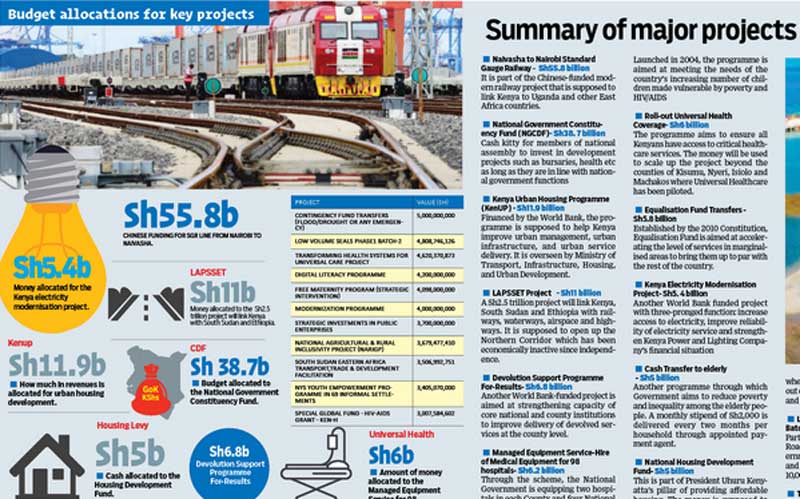×
The Standard e-Paper
Fearless, Trusted News

President Uhuru Kenyatta’s Sh410 billion kitty for development spending will include some of the projects that have been laced with controversy, including allocating Sh5 billion to the Housing Development Fund which is entangled in legal and logistical hurdles.